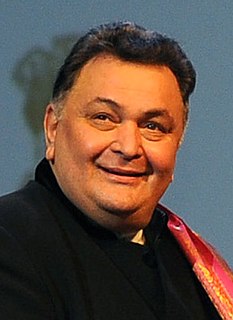A Quote by Arnold Schwarzenegger
Until now, he has never told the full story of his life, in his own voice.
Related Quotes
My mother was a full-time mom, and Dad started his own business. He was a mini-American dream story. Came from Russia at age 4, started his own pen business in Brooklyn. The company isn't around now, but he created his own healthy little world, leaving a decent legacy. My dad taught at Cooper Union but was never fully graduated himself.
He appeared to enjoy beyond everything the sound of his own voice. I couldn't wonder at that, for it was mellow and full and gave great importance to every word he uttered. He listened to himself with obvious satisfaction and sometimes gently beat time to his own music with his head or rounded a sentence with his hand.
Will’s voice dropped. “Everyone makes mistakes, Jem.” “Yes,” said Jem. “You just make more of them than most people.” “I —” “You hurt everyone,” said Jem. “Everyone whose life you touch.” “Not you,” Will whispered. “I hurt everyone but you. I never meant to hurt you.” Jem put his hands up, pressing his palms against his eyes. “Will —” “You can’t never forgive me,” Will said in disbelief, hearing the panic tinging his own voice. “I’d be —” “Alone?” Jem lowered his hand, but he was smiling now, crookedly. “And whose fault is that?
Everybody is an expert on one thing - that's what I learned in my high school journalism class - and that's, of course, his own life. And everybody deserves to live and have his story told. And if it doesn't seem like an interesting story, then that's the failure of the listener, or the journalist who retells it badly.
His face set in grim determination, Richard slogged ahead, his fingers reaching up to touch the tooth under his shirt. Loneliness, deeper than he had never known, sagged his shoulders. All his friends were lost to him. He knew now that his life was not his own. It belonged to his duty, to his task. He was the Seeker. Nothing more. Nothing less. Not his own man, but a pawn to be used by others. A tool, same as his sword, to help others, that they might have the life he had only glimpsed for a twinkling. He was no different from the dark things in the boundary. A bringer of death.
In His discourses, His miracles, His parables, His sufferings, His resurrection, He gradually raises the pedestal of His humanity before the world, but under a cover, until the shaft reaches from the grave to the heavens, whenHe lifts the curtain, and displays the figure of a man on a throne, for the worship of the universe; and clothing His church with His own power, He authorizes it to baptize and to preach remission of sins in His own name.
He had no memory of ever being hugged like this, as though by a mother. The full weight of everything he had seen that night seemed to fall in upon him as Mrs. Weasley held him to her. His mother's face, his father's voice, the sight of Cedric, dead on the ground all started spinning in his head until he could hardly bear it, until he was screwing up his face against the howl of misery fighting to get out of him.
You see, Mademoiselle, I have experience, I know the world. To pass the time, why don't you ask every passenger to tell you his life's story? And if there is a single one among them who has never cursed his life, who has not often told himself that he was the unhappiest of men, then you may throw me overboard, headfirst!
To pull the metal splinter from my palm my father recited a story in a low voice. I watched his lovely face and not the blade. Before the story ended, he'd removed the iron sliver I thought I'd die from. I can't remember the tale, but hear his voice still, a well of dark water, a prayer. And I recall his hands, two measures of tenderness he laid against my face.
In my day a reporter who took an assignment was wholly on his own until he got back to the office, and even then he was little molested until his copy was turned in at the desk; today he tends to become only a homunculus at the end of a telephone wire, and the reduction of his observations to prose is commonly farmed out to literary castrati who never leave the office, and hence never feel the wind of the world in their faces or see anything with their own eyes.



































